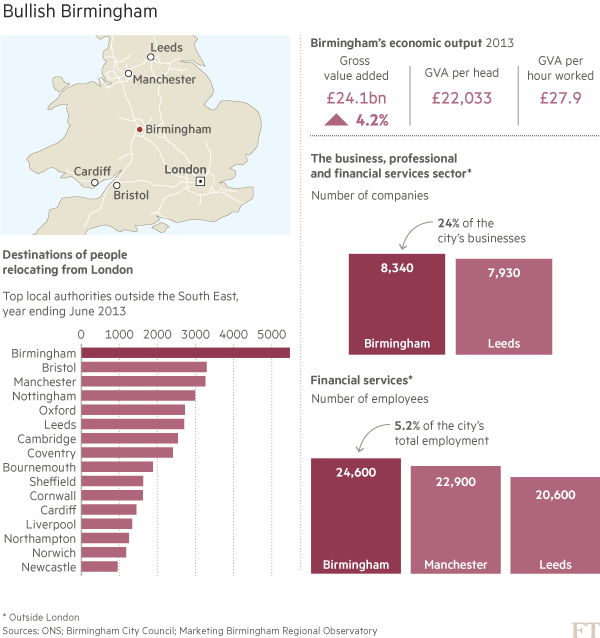Birmingham’s multicultural population ideal for clinical trials

Roula Khalaf, Editor of the FT, selects her favourite stories in this weekly newsletter.
With its art deco design and red-brick structure, the original premises of Queen Elizabeth Hospital, Birmingham, is a symbol of 20th century medicine.
Yet, a £24m redevelopment aims to put the 1930s building back at the cutting edge of healthcare as home to the new Institute of Translational Medicine.
Covering 6,000 square metres over five storeys, the centre, due to open fully next year, is at the heart of Birmingham’s efforts to become a world class centre for medical research.
The city is already a big base for clinical trials because of its access to a large and ethnically diverse pool of patients in the surrounding West Midlands region. This 5.7m-strong population allows for large trials across a variety of demographic and racial groups, or more targeted trials involving specific groups that would be harder to recruit in smaller communities.
While places such as Oxford and Cambridge are more renowned as sources of medical innovation, Birmingham wants to make a name as the place where treatments are proven safe and effective.
“To be competitive in clinical research, you need a large ethnically diverse population, you need clinical excellence and you need infrastructure,” says Charles Craddock, director of the centre for clinical haematology at the Queen Elizabeth Hospital. “Birmingham has all three.”
Attracting clinical research is a competitive business because the potential rewards are great. Of the average $2.56bn that it costs to bring a new drug to market, $1.46bn is spent on clinical development, according to the Tufts Center for the Study of Drug Development. Much of that spending is in the places where pharmaceuticals companies conduct their trials.
This supports investment and jobs in hospitals and medical schools and, for those patients taking part in trials, offers access to potentially breakthrough treatments.
Once completed, Birmingham’s Institute of Translational Medicine will have capacity for 600 trialists alongside specialist clinicians and researchers. Located close to the new Queen Elizabeth Hospital and the University of Birmingham medical school, the combined campus will strengthen the city’s broader push to become a research powerhouse.
Two of Britain’s biggest medical charities, the Wellcome Trust and Cancer Research UK, have big clinical research facilities in the city and the national Biomedical Research Unit in Liver Disease is located there.
Civic leaders hope this growing cluster will attract medical companies to invest in the city — and spur more homegrown start-ups. Some have started to emerge, such as the University of Birmingham spinouts Cytox and Serascience, which are developing diagnostic technology for Alzheimer’s disease and cancer, respectively.
However, Birmingham is not alone in seeking to cast itself as a life science hub. Scotland, Wales and the north of England are trying to build similar clusters. All of them are trailing behind the “golden triangle” of Oxford, Cambridge and London, which together boast several of the world’s top medical research universities and strong clinical trial infrastructure.
Prof Craddock says Birmingham wants to work with other UK regions as well as compete with them. He says the nationwide reach of the NHS allows for joined-up research on a scale not possible in many other countries — citing the 100,000 Genomes Project which is gathering genetic data from NHS patients across England to aid diagnosis and treatment of cancer and rare diseases.
“We need to put our metro centres together to create pools of 20m patients or more,” says Prof Craddock.

Co-operation of this kind is already happening in Birmingham-led trials of a new treatment for Sjögren’s syndrome, an autoimmune condition that attacks fluid-secreting glands and affects up to 500,000 people in the UK.
Novartis, the Swiss pharmaceuticals group, is funding the trials in Birmingham, Newcastle and London in partnership with the National Institute for Health Research, which promotes research in the NHS.
Prof Craddock believes Birmingham’s life science strategy will create as many as 2,000 jobs in the long term. But he says the biggest value will be felt by patients.
“There are already 100s of people who are alive today who wouldn’t have been but for taking part in our trials.”
Comments